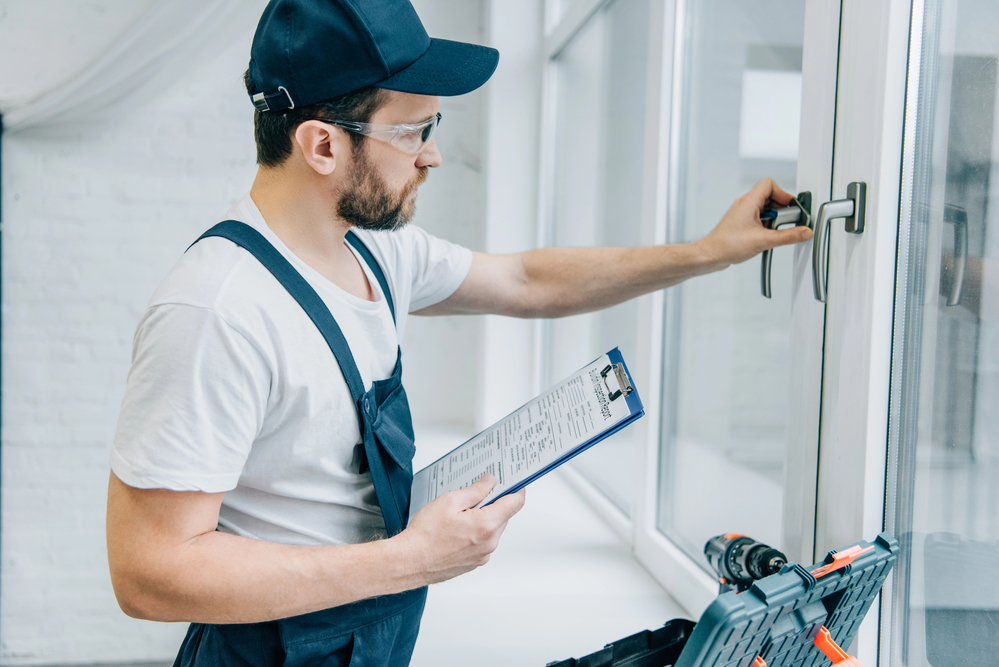Damaged windows not only look unsightly but also pose safety risks and compromise your home’s energy efficiency. When faced with window issues, deciding between repair and replacement can be a real dilemma. However, knowing the specific situations that require you to either repair or replace windows can guide you toward the best decision for your home.
When to Consider Window Repair
When your windows show signs of wear and tear, repairing damaged components is often more cost-effective than replacing entire windows. Additionally, window repair helps maintain the architectural integrity of your home while addressing specific issues. Here are some situations where window repair might be the optimal solution:
- Paint Issues
You can refresh your home’s exterior appearance by addressing chipped or peeling paint on your windows. A fresh coat applied by a skilled technician can breathe new life into your windows, enhancing your home’s curb appeal.
- Water Damage
Stains around your windows indicate water damage, which can compromise the structural integrity of your windows. Repairing water-damaged areas, such as frames, can prevent further deterioration and maintain your home’s aesthetic appeal.
- Rotten Frames
Rotten wood frames are common in older homes and can result from prolonged exposure to moisture. Prompt repairs by window experts can salvage affected frames, preventing costly replacements and preserving the charm of your home.
- Mullion or Muntin Damage
Mullions and muntins, whether decorative or structural, can be repaired if damaged. Skilled window technicians can restore these elements, ensuring your windows look pristine and function properly.
- Caulking Wear
Drafty windows often stem from worn caulking, which compromises the seal around your windows. Replacing deteriorated caulking can enhance energy efficiency and prevent air infiltration, improving indoor comfort.
- Operational Issues
Stuck or misaligned windows are not only inconvenient but also pose safety hazards. Professional repairs can address issues like thick paint, loose springs, or misaligned frames, restoring smooth operation to your windows.
- Casing Damage
Damaged casing detracts from your home’s aesthetics and leaves your windows vulnerable to further damage. Expert repairs can fix cracks, rot, or missing casing, preserving the visual appeal of your windows.
- Deteriorating Drip Cap
The drip cap, essential for moisture protection, can deteriorate over time. Repairing or replacing this component ensures continued water resistance and prevents interior damage.
When to Consider Window Replacement
When damage is extensive or your windows are outdated, window replacement is the more practical choice and may provide long-term benefits for your home. Here are situations where window replacement might be necessary:
- Excessive Damage
Severe damage, such as structural issues or extensive rot, may warrant window replacement to prevent further deterioration and ensure structural integrity. A professional assessment by a seasoned NJ window replacement contractor like Garden State Home Remodeling can determine the extent of damage and the need for replacement.
- Glass Feels Cold to the Touch
Single-pane windows are prone to heat loss and often feel cold to the touch. Upgrading to double or triple-pane windows can improve insulation and enhance indoor comfort, making replacement a worthwhile investment.
- Drafty Windows
Persistent drafts indicate air leaks or insulation issues that repairs alone may not address. Installing energy-efficient windows can minimize drafts, reduce energy consumption, and enhance overall comfort in your home.
- Foggy Windows
Fog trapped between window panes signals seal failure and compromised insulation. Replacement of the insulated glass unit is necessary to restore clarity and insulation properties, ensuring optimal window performance.
- High Power Bills
Old or inefficient windows contribute to high power bills by allowing heat transfer and air leakage. Upgrading to energy-efficient windows can lower utility costs and improve home comfort, making replacement a cost-effective solution in the long run.

